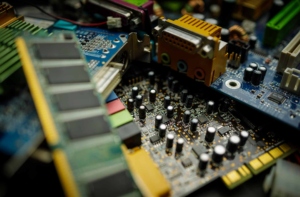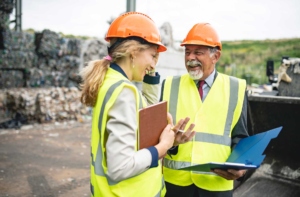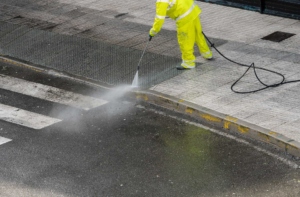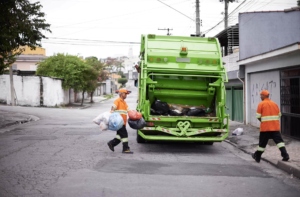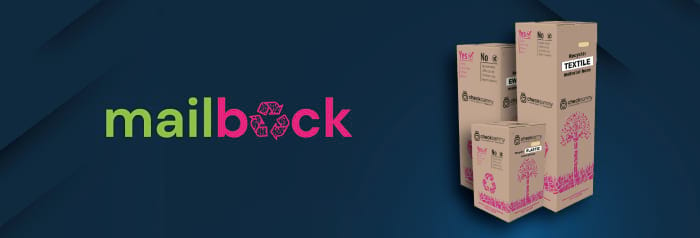Commercial Waste Removal: Protecting the Environment and Health
Commercial waste is different from household waste in a few key ways. First, commercial waste is typically generated in much larger quantities than household waste. Second, commercial waste can contain a wider variety of materials, including some that are hazardous. Third, commercial waste is often subject to more stringent regulations than household waste.
Proper disposal of commercial waste is important for a number of reasons. First, it helps to protect the environment.
Commercial waste can contain harmful materials that can pollute the air, water, and soil if it is not disposed of properly. Second, proper disposal of commercial waste can help to prevent health risks.
Some types of commercial waste, such as hazardous waste, can pose a risk to human health if it is not disposed of properly. Third, proper disposal of commercial waste can help to save businesses money.
Businesses can save money on disposal costs by recycling and composting commercial waste.
Call CheckSammy today and start improving tomorrow!
What is commercial waste?
Commercial waste is waste that is generated by businesses and organizations.
It includes a wide variety of materials, such as food waste, paper waste, plastic waste, metal waste, and hazardous waste.
What are types of commercial waste?
- Biomedical waste: This includes waste from hospitals and medical facilities, such as used needles, bandages, and blood products. This type of waste is considered hazardous, as it can contain harmful pathogens. Biomedical waste should be disposed of properly, either by incineration or by sending it to a certified hazardous waste disposal facility.
- Construction and demolition waste: This includes waste from construction and demolition sites, such as concrete, bricks, and wood. This type of waste can be recycled or reused, but it is often disposed of in landfills.
- Electronic waste: This includes waste from electronic devices, such as computers, televisions, and cell phones. This type of waste is often considered hazardous, as it contains harmful chemicals. Electronic waste should be disposed of properly, either by recycling or by sending it to a certified hazardous waste disposal facility.
- Food waste: This includes food scraps, spoiled food, and food packaging. Food waste can be a major environmental problem, as it contributes to methane emissions, which are a greenhouse gas that is 25 times more potent than carbon dioxide.
- Hazardous waste: This includes chemicals, batteries, and medical waste. Hazardous waste is the most dangerous type of commercial waste, and it must be disposed of properly. Hazardous waste can be recycled, but it is often more cost-effective to incinerate it.
- Metal waste: This includes aluminum cans, steel cans, and metal scraps. Metal waste is one of the most recyclable materials, and it is easy to recycle. Metal cans can be recycled into new cans, and metal scraps can be recycled into new products.
- Paper waste: This includes office paper, cardboard, and paper towels. Paper waste can be recycled, but it is important to make sure that it is recycled properly. If paper waste is not recycled, it can end up in a landfill, where it will take hundreds of years to decompose.
- Plastic waste: This includes plastic bottles, plastic bags, and plastic packaging. Plastic waste is a growing problem in the world. It can be difficult to recycle, and even recyclable plastic can be difficult to recycle if it is not properly sorted.
- Wood waste: This includes waste from wood processing industries, such as sawmills and furniture factories. This type of waste can be recycled or burned for energy.
- Yard waste: This includes waste from gardens and landscaping, such as grass clippings, leaves, and branches. This type of waste can be composted or disposed of in landfills.
How do businesses dispose of commercial waste?
- Recycling: Recycling is the process of converting waste materials into new materials and objects. Recycling can help to reduce the amount of waste that goes to landfills and incinerators.
- Waste-to-energy: Waste-to-energy plants burn waste to generate heat or electricity. This process can reduce the amount of waste that goes to landfills, and it can also generate a source of renewable energy. However, waste-to-energy plants can also produce harmful emissions, so it is important to choose a plant that has good pollution controls.
- Anaerobic digestion: Anaerobic digestion is a process that breaks down organic waste in the absence of oxygen. This process produces biogas, which is a mixture of methane and carbon dioxide. Biogas can be used as a fuel or to generate electricity. Anaerobic digestion is a relatively clean process, and it can be used to treat a variety of organic waste streams.
- Chemical treatment: Chemical treatment is a process that uses chemicals to break down waste. This process can be used to treat hazardous waste or to convert waste into a more manageable form. Chemical treatment can be effective in destroying harmful substances, but it can also produce harmful byproducts.
- Landfill gas recovery: Landfill gas recovery is a process that captures the methane gas that is produced in landfills. Methane gas is a greenhouse gas, so landfill gas recovery can help to reduce greenhouse gas emissions. Landfill gas can also be used as a fuel or to generate electricity.
Partner With CheckSammy
Proper waste disposal is essential for businesses of all sizes. It can help to protect the environment, save money, and prevent fines. There are a number of different methods of commercial waste disposal available, including recycling, composting, incineration, landfilling, waste-to-energy, anaerobic digestion, chemical treatment, and landfill gas recovery. The best method for a particular business will depend on the type of waste it generates, the regulations in its area, and its budget.
In addition to these methods, businesses can also look for waste management partnerships that offer a variety of services, such as on-site waste collection, waste audit, and waste disposal training. CheckSammy is a waste management company that offers a comprehensive range of services to businesses of all sizes. Checksammy can help businesses to reduce their waste, save money on waste disposal costs, and protect the environment.
Contact us today!
See Our Services
Create a custom solution to meet your waste and sustainability goals. Contact us today!
Continue reading
Dive deeper into the CheckSammy Blog by reading one of our posts below
Feeling the Pain of Higher Resident Turnover? Apartment Junk Removal Can Help
If you’re a property manager, you’ve probably had a significant increase in tenant turnover over the last couple of years. So it’s no wonder apartment junk removal may be top of mind for you right now. There are several reasons for this shift. For one, the housing market is on fire right now. In 2020 […]
Read More About Feeling the Pain of Higher Resident Turnover? Apartment Junk Removal Can HelpSetting Up a Community E-waste Recycling Program
E-waste is the fastest-growing municipal waste stream according to the EPA, yet e-waste recycling isn’t keeping pace. In fact, only 12.5% of all e-waste is recycled, reports the EPA. Starting a community e-waste recycling program is a terrific way to ensure hazardous e-waste, like lithium-ion batteries, doesn’t end up in your community’s landfill. Creating an […]
Read More About Setting Up a Community E-waste Recycling ProgramWaste Management’s Role in the Circular Economy
Establishing a waste management program for your business or community is one of the best ways you can contribute to the circular economy. Here’s everything you need to know about waste management’s role in the circular economy (and how to get involved). What Is the Circular Economy? Our current economic model is all about taking […]
Read More About Waste Management’s Role in the Circular Economy5 Reasons to Consider a Textile Recycling Program for Your Organization
Americans sent more than 17 million tons of textiles to landfills in 2018, a volume that is only increasing every year, reports the Environmental Protection Agency. When you think about the fact that it can take over 200 years for textiles to decompose, it’s easy to grasp how large textile waste’s contribution is to the […]
Read More About 5 Reasons to Consider a Textile Recycling Program for Your Organization8 Benefits of Environmentally Friendly Power Washing Services
If you’re into maintaining the curb appeal of your business or home, then you’ve probably heard of pressure washing. Pressure cleaning involves using high-pressure water spray to remove grime, mold, dust, paint, mud, and other junk from objects or surfaces. Many people worry that pressure washing isn’t good for the environment, but this couldn’t be […]
Read More About 8 Benefits of Environmentally Friendly Power Washing ServicesWhy Our Customers Love Our Full-Service Junk Removal
If you’re looking for full-service junk removal services, you’ve come to the right place. CheckSammy is a one-stop shop for all your junk removal and sustainability needs. From our affordability, simplicity, and unrivaled turnaround times to our innovative sustainability solutions and patented technology and data, it’s clear why some of North America’s biggest companies choose […]
Read More About Why Our Customers Love Our Full-Service Junk RemovalTips for a Stress-Free Move From An Eco-Friendly Junk Removal Company
What does an eco-friendly junk removal company know about moving? Quite a lot, actually. Moving can be an especially chaotic time. You have to pack everything up, get rid of unwanted items, clean your property, load everything up, and move your things to your new location. That doesn’t even include the unpacking and resettling period. […]
Read More About Tips for a Stress-Free Move From An Eco-Friendly Junk Removal CompanyCollege Junk Removal Tips for Student Move-In Day
As the new school year gears up, colleges across the country are looking for ways to clean up their campuses before the new year begins, and many of them want to do so sustainably. College junk removal isn’t easy, though, especially around move-in week—and when trying to do so sustainably. As students move in and […]
Read More About College Junk Removal Tips for Student Move-In Day8 Items Hospitality Businesses May Not Know They Can Recycle
One hotel guest produces 2.5 pounds of trash every single day. Just a single hotel room produces around one cubic yard of waste each month, which totals 200 gallons of waste per room every month. Most of this waste goes straight to the landfill, even though research shows that up to 60% of it is […]
Read More About 8 Items Hospitality Businesses May Not Know They Can Recycle
